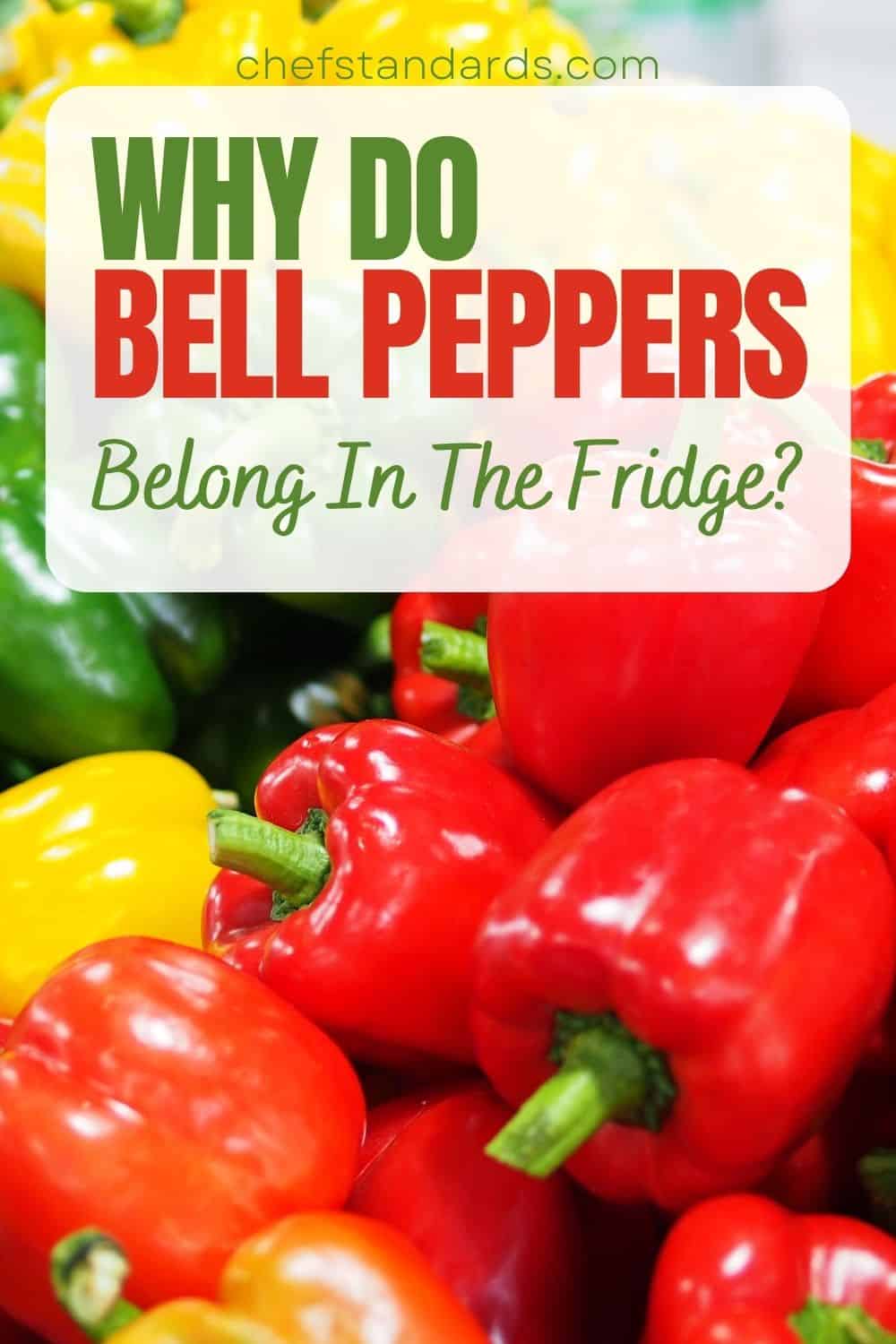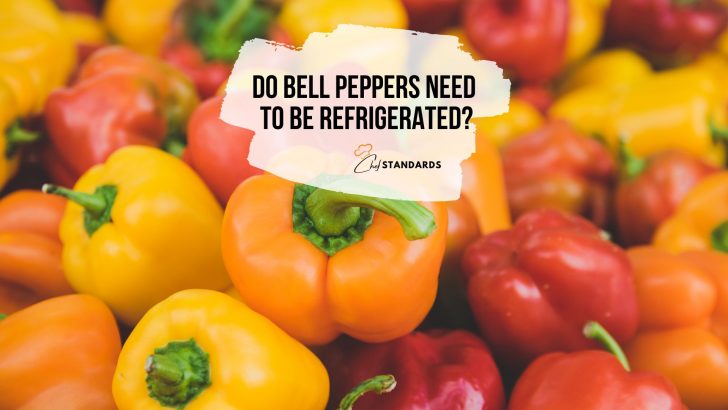Bell peppers are one of the most popular additions to various vegetable dishes, especially if you are up for a healthy meal.
They are quite nutritious, with high amounts of vitamin C (especially red bell peppers), as well as vitamins A, B6, and E, folate, fiber, and various antioxidants. (1)
Considering this, you don’t want your bell peppers to get spoiled, so the question of their storage arises. And many people ask “Do bell peppers need to be refrigerated?”.
Well, while it is not necessary to always store them in the fridge, refrigerating bell peppers is a good idea if you want to keep them fresh for a longer period of time.
But let’s learn why that is so.
Why Should You Refrigerate Bell Peppers?
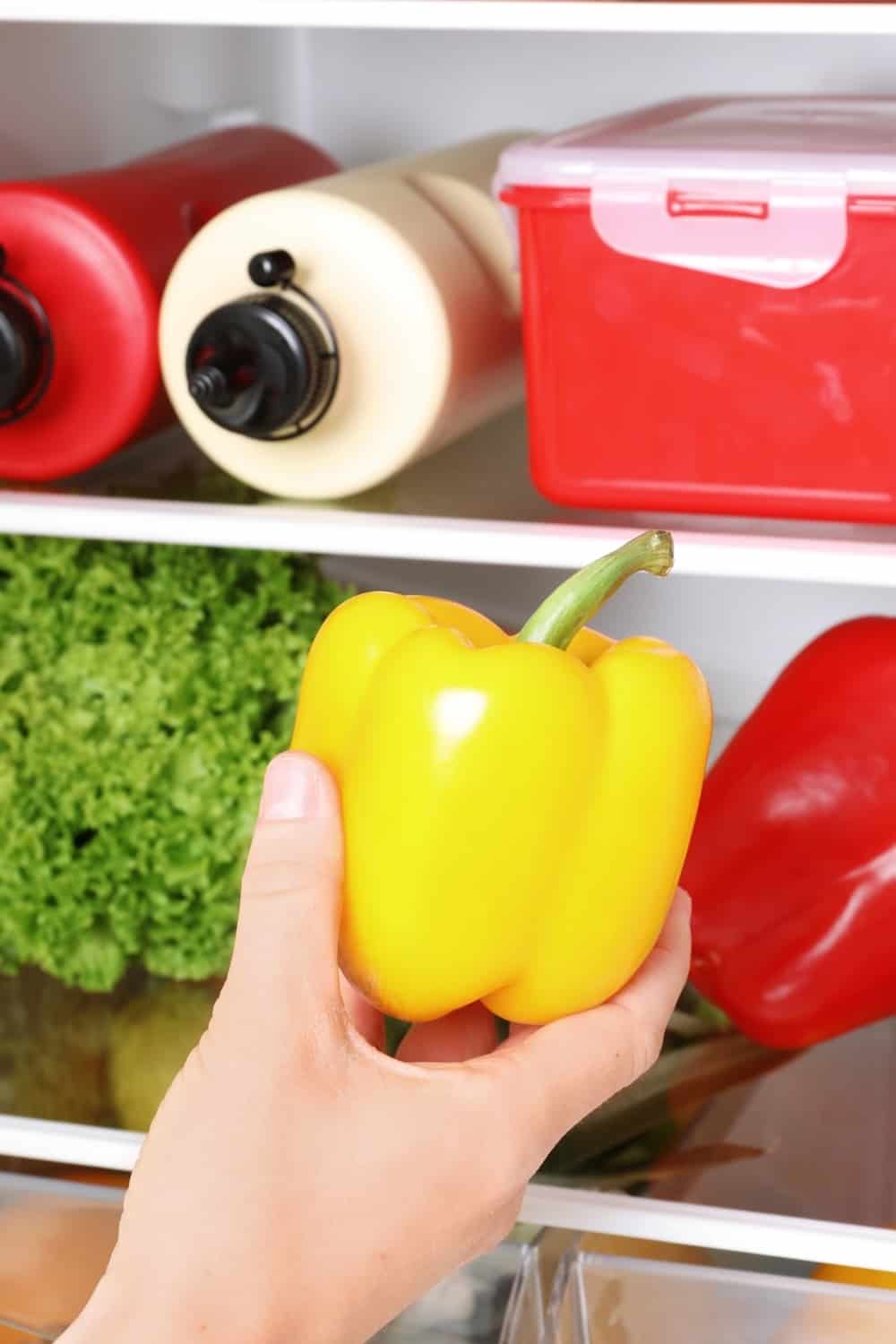
There are various vegetables out there and each and everyone is unique, especially when it comes to the ways of storing them.
Some types of fruits and veggies like dry and cool places, while others like the opposite. When it comes to bell peppers, their preferred climate can be described as cool and dry (or moderate humidity).
So, it is not difficult to conclude why it is a good idea to keep them in the fridge, especially if you are not planning to use them right away.
Keeping them in the fridge, i.e. at lower temperatures, will slow down the ripening process and keep them fresh for longer.
Aside from that, the temperature in the fridge is much more stable than on the outside. So, considering the fact that bell peppers can be very sensitive to temperature changes, the conclusion is self-evident.
If stored properly, refrigerated bell peppers won’t lose their flavor and texture, i.e. they will maintain their crispness and sweetness, which is what makes them enjoyable to eat.
As you can see, there are a lot of reasons to store bell peppers in the fridge, so let’s see how long they can last there and how to store them the right way.
How Long Do Bell Peppers Last In The Fridge?
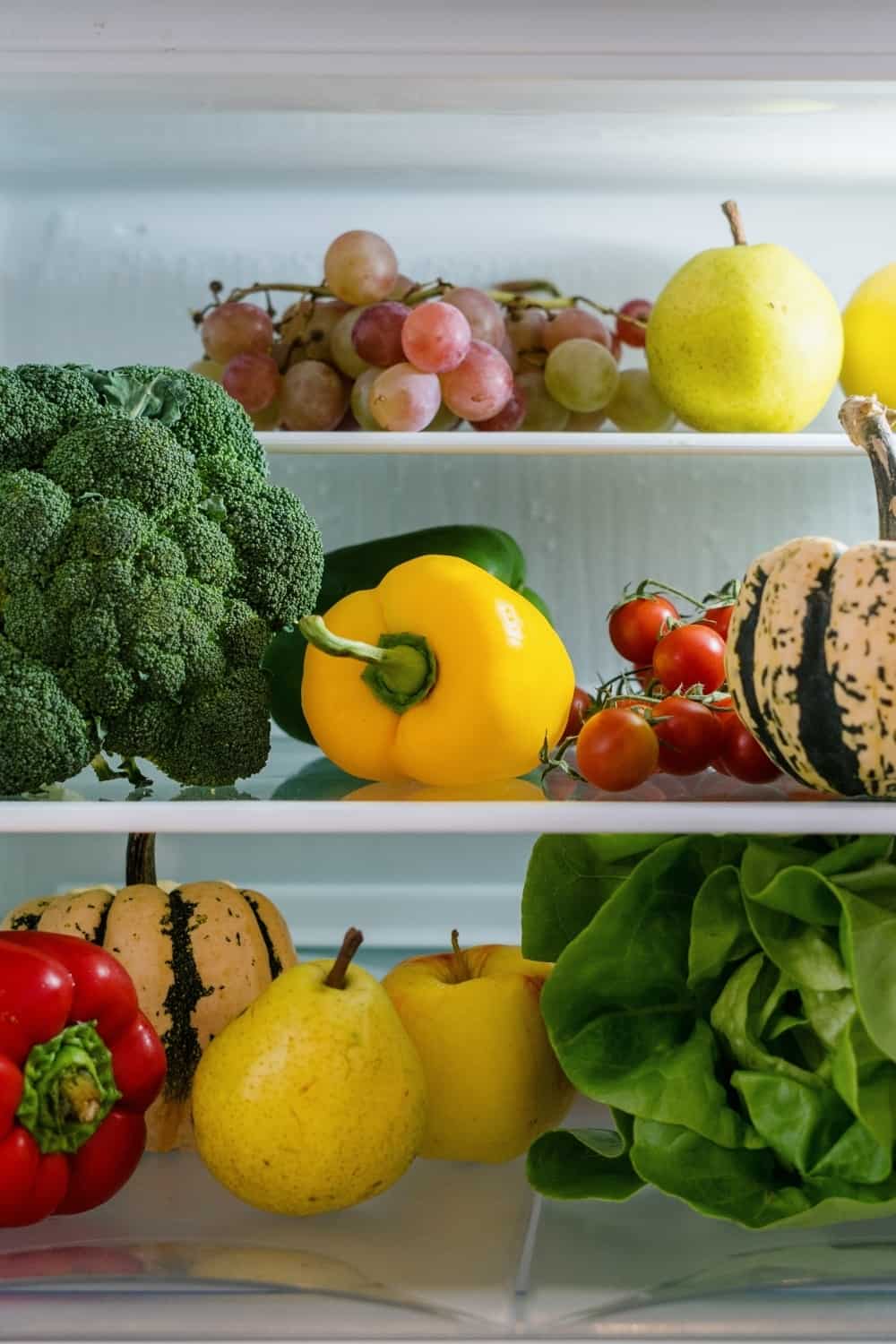
There are a few factors that influence the shelf life of bell peppers in the fridge, including the level of freshness at the time of purchase, fridge temperature, humidity level, right storage method, and variety.
One of the most important factors is the bell pepper variety and, below, you will be able to learn how long whole bell peppers last in the fridge based on that factor.
• Green Bell Peppers: Green bell peppers have a longer shelf life than other varieties because they are less ripe. So, if you store them the right way in the fridge, they will stay fresh for about 2 weeks.
• Yellow Bell Peppers: Yellow bell peppers are a slightly riper version and, if refrigerated properly, they will last for up to 10 days in the fridge.
• Orange Bell Peppers: Orange bell peppers are also a riper version and they can last less time in the fridge, i.e. about 7-10 days if stored the right way.
• Red Bell Peppers: Red bell peppers are the ripest variety and will start to go soft the soonest, so it is not recommendable to keep them in the fridge for more than 1 week.
How To Properly Refrigerate Bell Peppers
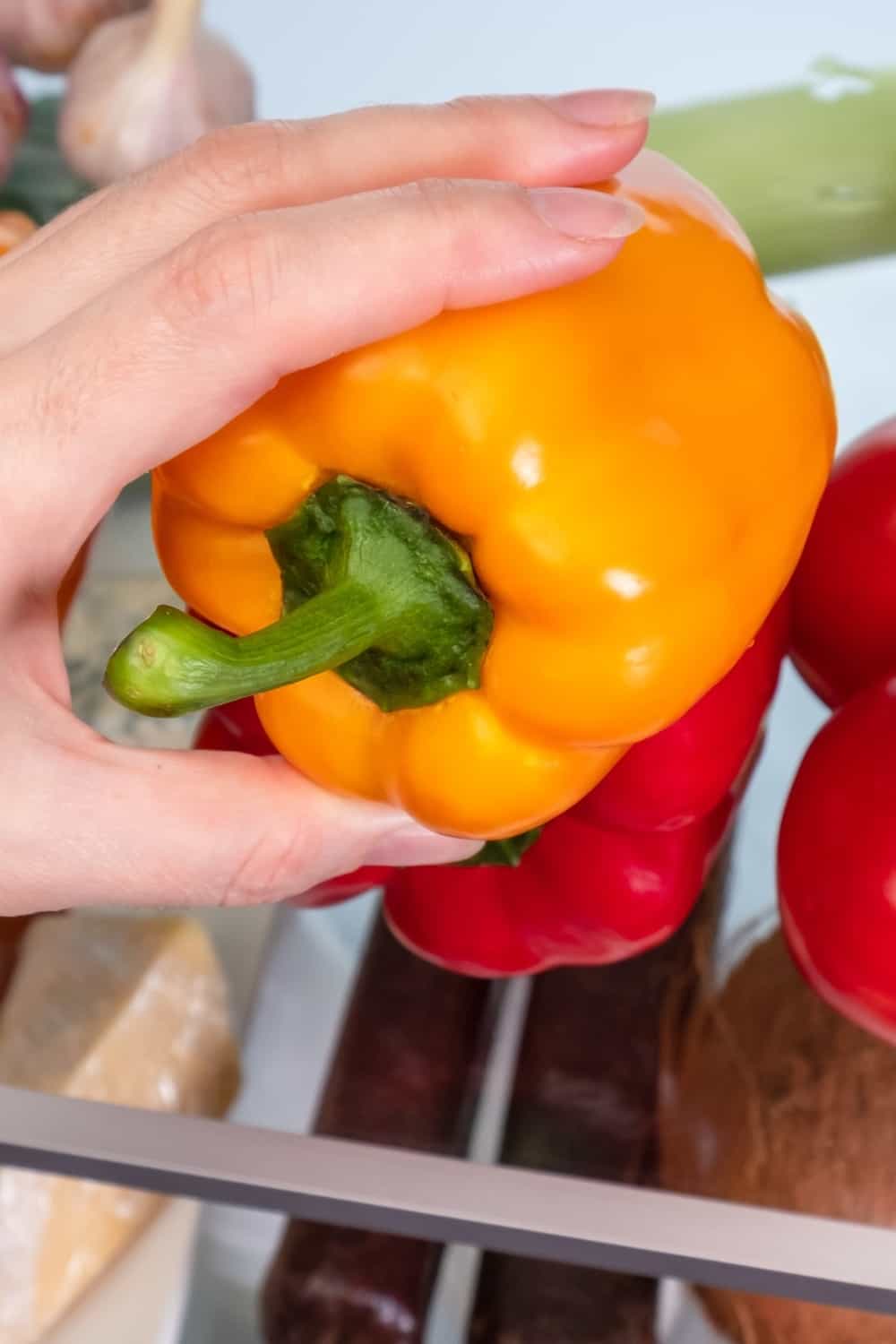
Now, all this information about shelf life is not valid if the bell peppers are not stored in the fridge properly and if the right conditions do not prevail in the fridge itself. So, it is important to know how to do that, and below are some handy tips.
• Choose Right Bell Peppers: The fridge itself and a good storage method won’t be worth it if you don’t choose fresh bell peppers at the store. So, it is important to choose ones that are firm and have smooth, shiny skin, with no spots or blemishes.
• Keep Them Dry: If you are planning to refrigerate your bell peppers, it is not a good idea to wash them or expose them to any kind of moisture before that.
Namely, moisture is this fruit’s great enemy and will cause it to lose that crunch we all love and make it spoil more quickly.
• Store Them In The Plastic Bag: They don’t like moisture, but humidity can be their good friend. To achieve that, it is a great idea to store them in a plastic bag, either the one they came in or a ziplock bag.
• Don’t Seal The Bag Too Tightly: Although it is important to protect them from moisture, it is a good idea to allow some ventilation for them because otherwise they will rot more quickly.
• Put Them In The Crisper Drawer: Since bell peppers like low and stable temperatures, it is best to store them in the crisper drawer.
However, you don’t want them to be in the coldest place in the fridge, so it is important to store them in the very front of the crisper drawer.
• Avoid Putting Heavy Items On Top: Raw bell peppers have a crisp and crunchy texture that can easily be damaged, so you don’t want to put any heavy items on top of them.
This can cause them to become bruised or crushed, which can lead to spoilage.
Do Sliced Bell Peppers Need To Be Refrigerated?
While in some cases, whole bell peppers do not need refrigeration, that is not the case with sliced bell peppers or bell pepper leftovers.
Those must be refrigerated immediately if you want to prevent them from spoiling.
Namely, when you slice a bell pepper, its internal structure is almost entirely exposed to air, which can provide a good environment for bacteria to grow and multiply at room temperature.
According to the United States Department of Agriculture (USDA), room temperature falls in the category of the temperature danger zone (40 °F-140 °F), and, in those conditions, harmful bacteria start to grow rapidly. (2)
Because of that, it is very important to store them in the fridge and store them the right way.
It would be best to store cut or sliced bell peppers in an airtight container or resealable bag in the fridge.
After that, it is essential to line the bag or container with a paper towel that will soak up extra moisture and help them stay fresh and crisp for longer.
Adding a paper towel is very important when it comes to sliced bell peppers because, otherwise, excess moisture will quickly start to build up and speed up the softening of the slices and make them rot faster.
When you do that, just put the container or bag in the crisper drawer (like is the case with whole bell peppers) and you are good to go.
How Long Do Sliced Bell Peppers Last In The Fridge?
As is the case with whole bell peppers, the shelf life of sliced ones also depends on the variety, although it is not the dominant factor.
Namely, sliced green bell peppers tend to last around 5 days in the fridge.
On the other hand, yellow, orange, and red bell peppers will stay good for up to 3 days in the fridge.
As you can see, the differences are not so big and there aren’t any differences between the yellow, orange, and red varieties.
Can You Refrigerate Cooked Bell Peppers?
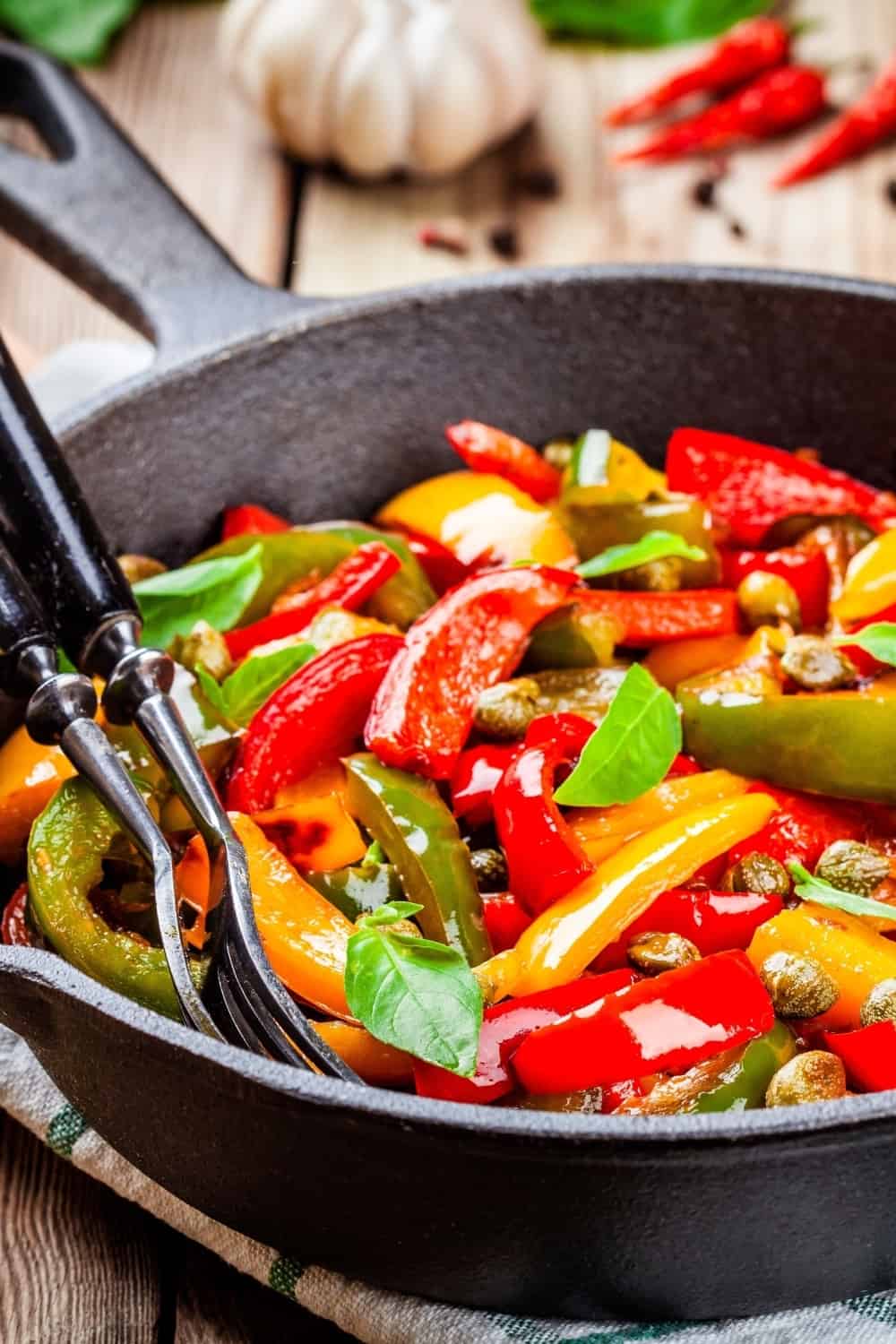
Yes, cooked bell peppers can definitely be stored in the fridge, especially if you have some leftovers or don’t want to consume them immediately. In those situations, it is even preferable to refrigerate them to avoid quick spillage at room temperature.
The refrigeration process is quite similar to that of raw whole and sliced bell peppers, but there are some differences, so it is not out of hand to learn this guideline and refrigerate your cooked bell peppers the right way.
1. If you just cooked your bell peppers, you need to keep them outside for a few minutes until they cool down to room temperature. This is because hot food can raise the fridge temperature and cause bacteria growth.
2. Once cooled, you must transfer the cooked bell peppers to an airtight container or ziplock bag because they can properly protect your food from air and moisture. Of course, you must close the lid tightly to ensure that.
3. Now, you can label the bag or container with the exact date of storage. This will help you keep track of their shelf life and ensure that you use them before they go bad.
4. Put the labeled and properly sealed bag or container in the fridge. Avoid putting it too close to the fridge door because the temperature there is unstable.
If you follow these simple steps, your cooked bell peppers will stay good in the fridge for up to 3-5 days, no matter what type you are dealing with.
How Long Will Bell Peppers Last Unrefrigerated?
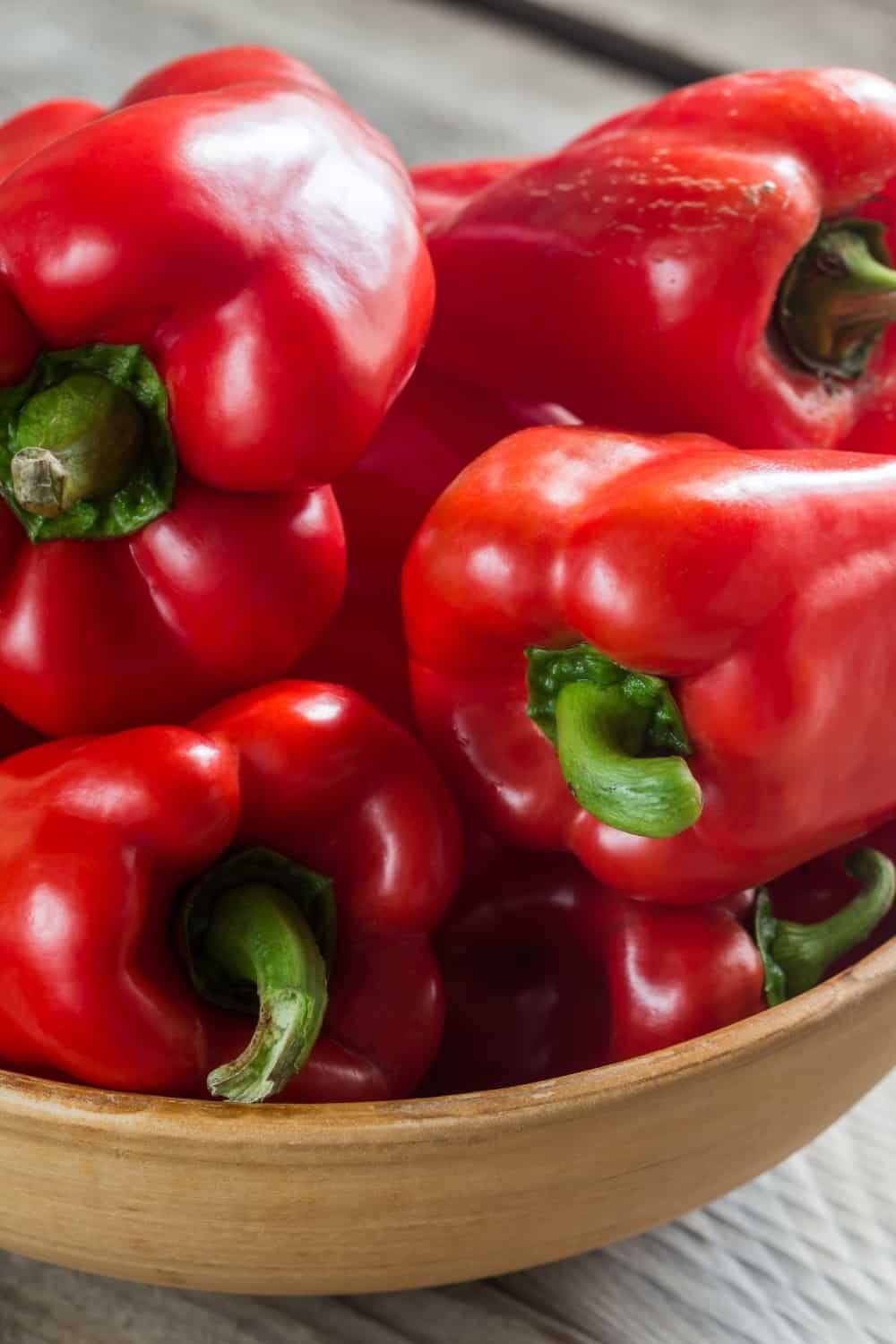
Now that you know why it is important to refrigerate your bell peppers, how to refrigerate them the right way, and how long they can last in the fridge, it is also important to know how long you can leave them outside the fridge.
The answer to this question also depends on the variety of bell peppers and the way they are handled. So let’s take a look.
• Whole Bell Peppers: If stored properly, whole bell peppers can stay good for a few days outside the fridge. However, the temperature must not be higher than 77 degrees F and your bell peppers must not be exposed to direct sunlight or any kind of heat source.
In those conditions, you can leave them outside the fridge for up to 5 days. Take note that green bell peppers will stay good for up to one day longer than other varieties.
• Sliced Bell Peppers: It is a different story from cut-up bell peppers since it is not recommended to leave them outside for too long because of the high risk of spoilage.
Once you cut your bell peppers, no matter the variety, do not leave them at room temperature for more than 2 hours.
Also, if the temperature is higher than 90 degrees F, it is not recommendable to leave them outside the fridge for more than 1 hour.
• Cooked Bell Peppers: The same goes for cooked bell peppers. It is not good that they stay at room temperature for more than 2 hours.
The only difference lies in the fact that you have to let cooked bell peppers cool down to room temperature for some time because it is not a good idea to refrigerate warm or hot food.
What Are The Signs Of Bad Bell Peppers?
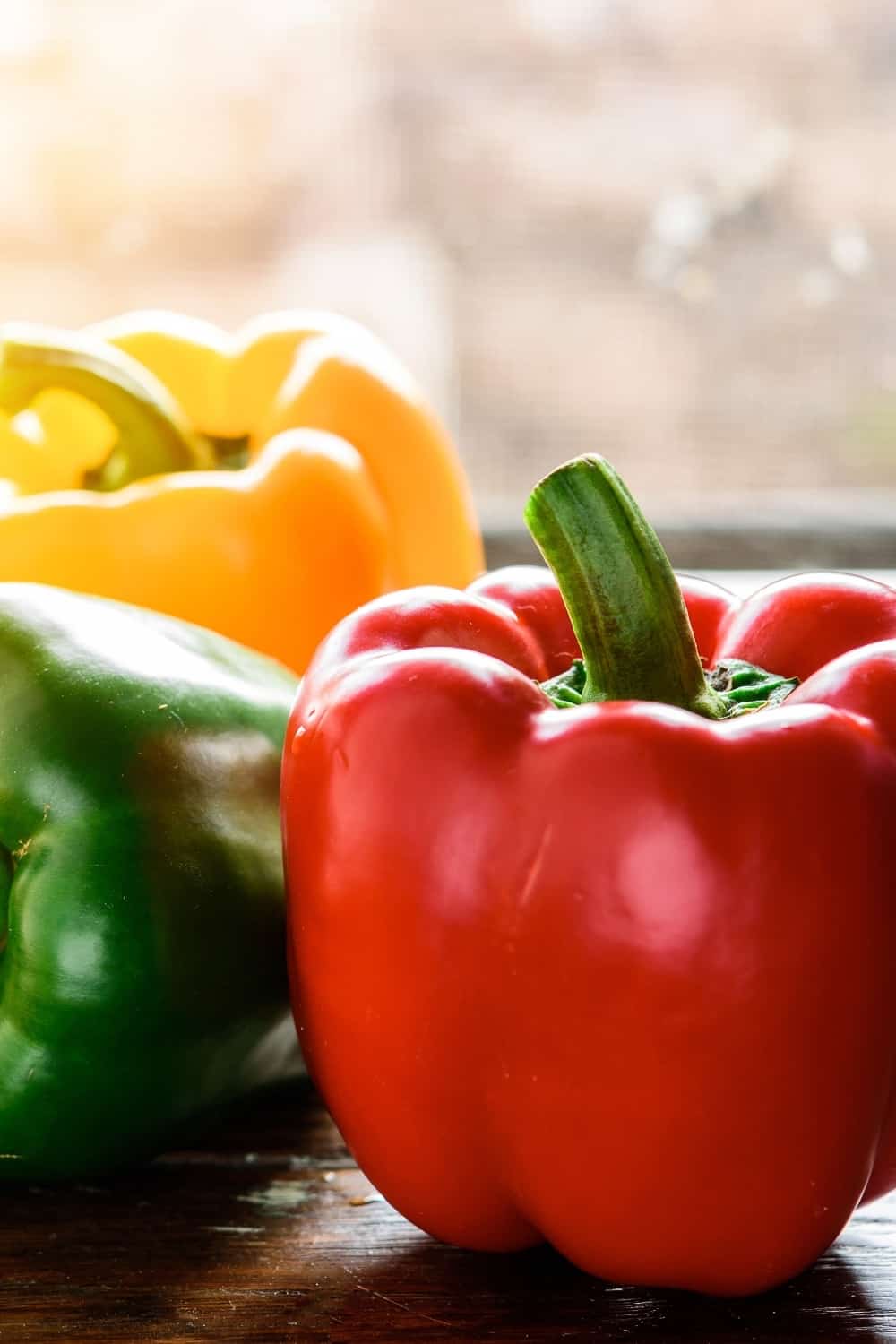
So far, you were able to learn everything important in terms of handling bell peppers the right way. However, it is also quite important to know how to tell if your bell peppers are bad because, well, your health is at stake.
So, let’s see what those signs of spoilage are.
• Discoloration: There are various colors of bell peppers based on their types. However, one thing is sure. If your bell pepper has turned black, brown, or gray, it is highly likely that it is spoiled and should be discarded.
• Slimy Texture: Healthy and fresh bell peppers have a smooth appearance. The skin is taut and wrinkle-free and the flesh is firm to some extent. However, if it feels slimy under your fingers or if you notice a slimy texture, it is not good for consumption anymore.
• Soft Spots: Soft or mushy spots are always bad signs. So, if you notice any on your bell pepper, it may be rotten or it is starting to spoil.
• Mold: If you see any moldy parts on your bell pepper, it is not enough to just cut off that part, but you should get rid of the whole pepper to stay on the safe side.
• Bad Smell: In general, bell peppers have a mild, sweet, and slightly grassy aroma. However, once they get contaminated by the bacteria, they become sour, foul, or off-odor.
• Wrinkles: Wrinkles on bell peppers are not a sign of true spoilage, i.e. you won’t get sick if you consume bell peppers with wrinkles.
Actually, wrinkles are a sign that bell pepper may be past its prime and no longer fresh, i.e. lose its flavor and texture.
See also: Are Peppers Fruits? The Surprising Truth You Need To Know
Bottom Line
So, do bell peppers need to be refrigerated?
Whole bell peppers, especially green varieties, won’t spoil immediately at room temperature, so they can stay for a few days outside of the fridge if stored properly.
However, if you are dealing with sliced or cooked bell peppers, you shouldn’t wait too long before you transfer them to the fridge. You just have to follow the guidelines explained above and they will be good to go.
1. https://www.medicalnewstoday.com/articles/bell-peppers
2. https://www.fsis.usda.gov/food-safety/safe-food-handling-and-preparation/food-safety-basics/how-temperatures-affect-food
